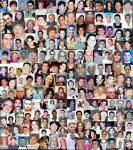
I must admit to some trepidation when the Journal of American History editor Ed Linenthal first mentioned this project. In the last several years, I have served as a reader for a number of journals focused on terrorism to which historians submitted pieces—with John Brown a recurring theme—that showed little or no understanding of the processes of terrorism. Each manuscript was returned with heavy red marks, suggestions, and a basic bibliography of sources through which the historian might at least briefly acquaint himself or herself with what terrorism scholars have been writing for more than four decades. True, the attacks of September 11, 2001, inflated this corpus beyond all reasonable bounds, but a good rule of thumb is that a respected scholar of terrorism studies before 9/11 is a respected scholar after 9/11. Thus it was with considerable pleasure that I read Beverly Gage's nuanced and multidisciplinary essay. 1 John Brown does make an appearance, but he does so in a multifaceted way. There is an engagement, rare for a historian, that tries to make the discipline more than a passing spectator of events. Historians are, as Gage notes, observers, not doers. My own professors in the history of culture at the University of Chicago insisted the same. When I had the temerity to suggest that my dissertation on millenarian revolution might have in it the seeds of a possible predictive instrument, I was silenced by our department chair with the classic rejoinder: “I wouldn’t know, I AM A HISTORIAN.” In my heart of hearts, so am I, though I have strayed rather far from the reservation over the years. In short, Gage's essay is as fine a piece of analytical work on terrorism as I have read in recent years stemming from any discipline. I do take issue with …
[Full Text of this Article]
No comments:
Post a Comment